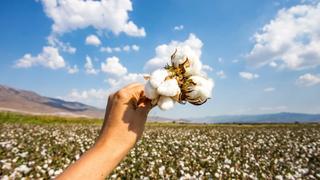The Indian vegetable oil import lobby has survived for long years on windfall gains made from time to time in the wake of changes in rates of customs duty.
No wonder, the import trade is paranoid about changes in duty.
More often than not, the import trade uses the oilseed farmer to advance its own business interests. Usually, the bogey of hurting growers’ interest is raised when customs duty is sought to be reduced. The fact is any reduction in duty lowers domestic price and thereby reduces the value of inventory that the importers usually carry (about 20 lakh tonnes on an average).
Changes in duty
A reduction in the rate of duty will result in a fall in domestic prices. If reduction in duty translates to a fall of ₹1,000 per tonne of vegoil, the trade stands to lose up to ₹200 crore on the 20 lakh tonnes stored. On the other hand, when duty is raised and if the impact translates to ₹1,000 a tonne, the import trade enjoys windfall gain of ₹200 crore. So, quite often, there is clamour for a hike rate of duty, and opposition to reduction in duty.
Supporting growers
Successive governments have fallen prey to the lobbying efforts of the import trade in the last two decades. Even as importers shoot from the shoulders of domestic oilseed growers, the import lobby has done precious little so far to support domestic oilseed growers.
If anything, excessive import and rampant speculation depress domestic oilseed prices which in turn creates an environment for the import lobby to approach the government for a duty hike.
More recently, a bogus claim of ‘Make in India’ is sought to be made by importers. It is nothing but a sham because the real ‘Make in India’ effort must start not from vegoil import, but from cultivating more oilseeds to augment domestic supplies.
Over the last twenty years or so, changes in rates of customs duty on vegetable oil have failed to impart the desired impact on domestic oilseed production.
As output continues to stagnate, dependence on import to meet expanding domestic consumption demand has widened to alarming levels; and with that the clamour for duty changes. Clearly, the Centre must look beyond vegoil tariff changes to influence oilseed production.
To start with, quantitative restrictions on import and regulation of the import trade should be imposed.
Importantly, the long credit period enjoyed by importers should be reduced to maximum 30 days in order to prevent over-trading.
Importing raw material
Because import prices are globally determined and exchange rate, too, impacts the landed cost, changes in duty may occasionally become inevitable.
To address this, a price band for market price may be fixed.
Duty changes should kick in when the upper or lower limit of the price band is breached. This would advance predictability and transparency in the market.
These simple administrative steps should become the starting point for strengthening domestic oilseed production.
Restricting import of vegetable oil will lift domestic oilseed prices and boost grower confidence.
Indeed, it is time to consider import of raw material — oilseeds — in lieu, at least partially, of vegetable oil.
Multiple benefits such as higher capacity utilisation, employment and income generation, and augmented edible oil and protein availability will accrue.
Import parities need to be examined.
There are structural issues that stymie Indian agriculture in general and oilseeds in particular. Improving input delivery system, expanding cultivation in irrigated areas and infusion of technology should be the way forward.
The writer is a policy commentator and commodities market specialist. Views are personal







Comments
Comments have to be in English, and in full sentences. They cannot be abusive or personal. Please abide by our community guidelines for posting your comments.
We have migrated to a new commenting platform. If you are already a registered user of TheHindu Businessline and logged in, you may continue to engage with our articles. If you do not have an account please register and login to post comments. Users can access their older comments by logging into their accounts on Vuukle.